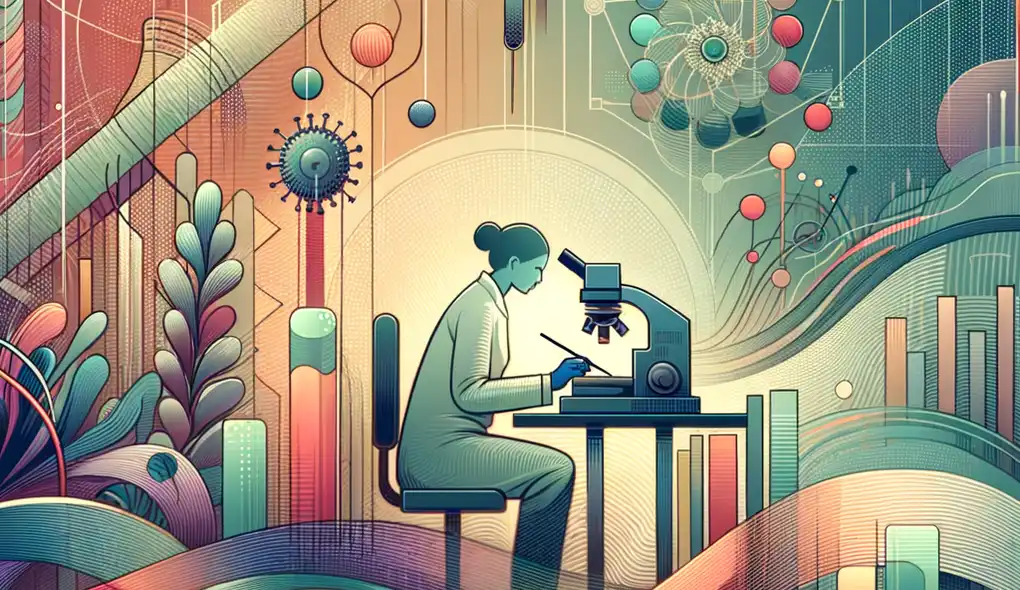Describe a situation where you had to provide analytical support to researchers and biologists.
Microarray Analyst Interview Questions
Sample answer to the question
In my previous role as a Bioinformatics Analyst, I had the opportunity to provide analytical support to researchers and biologists working on a genomics project. The research team was studying the gene expression patterns in different cancer types using microarray technology. My role was to analyze and interpret the microarray data to identify significant gene expression patterns. I worked closely with the researchers to understand their experimental requirements and provide the necessary analytical support. I used bioinformatics software like R and Python to perform statistical analysis on the data and generate visualizations to communicate the findings. I also maintained detailed records of the experiments and analyses. Overall, my analytical support helped the researchers gain valuable insights into the gene expression patterns and contributed to their research efforts.
A more solid answer
In my previous role as a Bioinformatics Analyst, I had the opportunity to provide comprehensive analytical support to researchers and biologists working on a genomics project. The research team was studying the gene expression patterns in different cancer types using microarray technology. I was involved in every step of the process, from experimental design to data analysis and result interpretation. I collaborated closely with the researchers and biologists to understand their requirements and ensure that the experiments were properly designed. During the data analysis phase, I used sophisticated bioinformatics tools, such as R and Python, to perform statistical analysis and identify significant gene expression patterns. I also utilized data visualization techniques to present the findings in a clear and concise manner, allowing the researchers to easily interpret the results. Additionally, I maintained accurate and detailed records of the experiments and analyses, ensuring that all data was properly documented. My attention to detail and critical thinking skills were crucial in ensuring the quality and reliability of the results. Overall, my analytical support played a key role in helping the researchers gain valuable insights into the gene expression patterns and contributed to their research efforts.
Why this is a more solid answer:
This solid answer expands upon the basic answer by providing more details about the candidate's involvement in the entire process of providing analytical support, from experimental design to result interpretation. It also highlights the use of sophisticated bioinformatics tools, data visualization techniques, and the importance of maintaining accurate records. The answer demonstrates the candidate's critical thinking skills and attention to detail.
An exceptional answer
In my previous role as a Bioinformatics Analyst, I had the opportunity to provide exceptional analytical support to a team of researchers and biologists who were conducting a groundbreaking study on the genetic basis of a rare disease using microarray technology. The project aimed to identify genetic variants associated with the disease and understand their functional implications. I played a critical role in designing the experimental protocols, including sample selection, data collection, and quality control measures to ensure the reliability of the results. To analyze the large and complex microarray datasets, I developed custom bioinformatics pipelines using R and Python, which involved preprocessing the raw data, applying advanced statistical methods, and performing pathway analysis to identify biological pathways affected by the genetic variants. The results of my analysis were presented to the research team and biologists in regular meetings, where I explained the complex findings in a clear and concise manner. I also collaborated with the team to publish the findings in a high-impact scientific journal, contributing to the advancement of knowledge in the field. The exceptional analytical support I provided helped the researchers gain groundbreaking insights into the genetic basis of the rare disease and opened new avenues for targeted therapies.
Why this is an exceptional answer:
This exceptional answer goes above and beyond by describing a high-impact project and the candidate's significant contributions to it. It highlights the candidate's involvement in experimental design, data analysis pipeline development, and collaboration with the team. The answer also mentions the publication of the findings in a high-impact scientific journal, showcasing the candidate's ability to contribute to the advancement of knowledge in the field.
How to prepare for this question
- Familiarize yourself with the principles and techniques of bioinformatics analysis, including microarray technology and statistical analysis.
- Gain hands-on experience with bioinformatics software and tools, such as R and Python, to perform data analysis.
- Develop your skills in data visualization to effectively communicate analytical findings.
- Stay updated with the latest advancements in microarray technologies and data analysis methods.
- Practice working on real or simulated genomic datasets to improve your proficiency in analyzing and interpreting complex data.
- Enhance your problem-solving and critical thinking skills by challenging yourself with analytical problems related to genomics.
- Improve your communication and presentation skills to effectively convey complex scientific concepts to a non-technical audience.
- Seek opportunities to collaborate with researchers and biologists to gain practical experience in providing analytical support.
- Pay attention to detail and maintain accurate records of experiments and analyses.
- Develop your teamwork and collaboration skills by participating in interdisciplinary projects or joining relevant professional communities.
What interviewers are evaluating
- Bioinformatics analysis
- Microarray technology expertise
- Statistical analysis proficiency
- Data visualization
- Experimental design
- Critical thinking
- Communication and presentation
- Problem-solving
- Attention to detail
- Teamwork and collaboration
Related Interview Questions
More questions for Microarray Analyst interviews